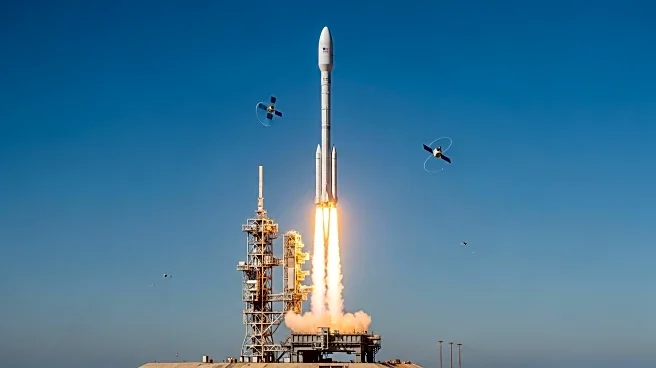What is the story about?
What's Happening?
SpaceX successfully launched its 37th Falcon 9 rocket from Vandenberg Space Force Base, deploying a defense satellite for Luxembourg along with multiple rideshare payloads. The mission included the NAOS spacecraft, designed for Earth observation, which will orbit the Earth 15 times per day. The satellite was originally set to launch on a Vega-C rocket but switched to SpaceX's Falcon 9 following a previous mission failure. The launch also included payloads from various countries, including the United States and India, with companies like Planet and Dhruva Space participating.
Why It's Important?
This launch underscores SpaceX's growing role in international satellite deployment, providing reliable access to space for various global stakeholders. The successful deployment of Luxembourg's NAOS satellite enhances the country's defense and military capabilities, while the rideshare payloads support commercial and scientific endeavors. The mission highlights SpaceX's ability to accommodate diverse payloads, fostering innovation and collaboration across the space industry.
What's Next?
SpaceX continues to expand its launch capabilities, with more missions planned for the year. The successful deployment of the NAOS satellite will enable Luxembourg to enhance its Earth observation capabilities, potentially influencing defense strategies. Companies involved in the rideshare mission, like Planet and Dhruva Space, are expected to continue their satellite launches, contributing to advancements in imaging technology and data processing.
















